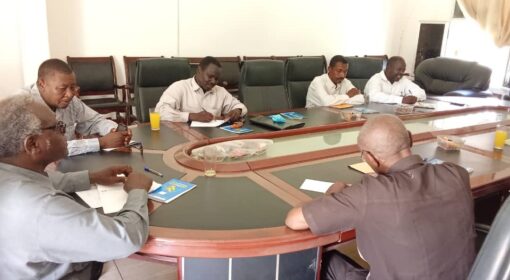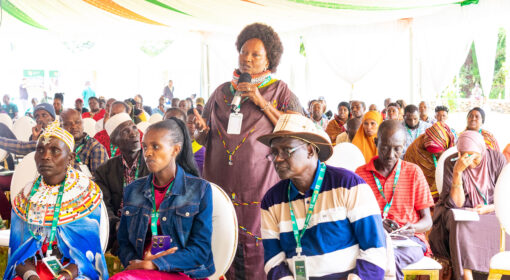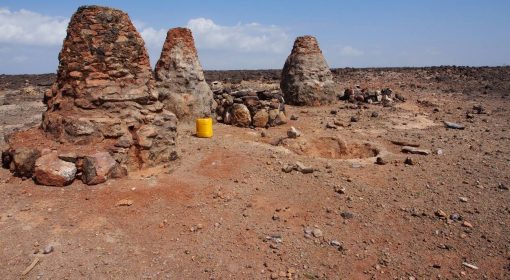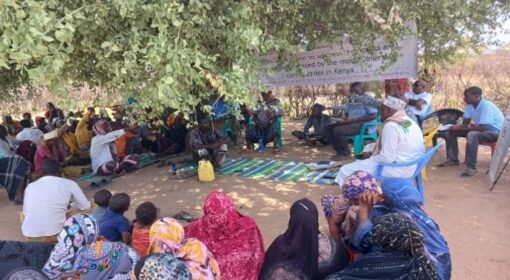By Nardos Masresha & Valerie Browning (APDA)
This blog is part of a dossier on locally-led adaptation, featuring insights and lessons from the Reversing the Flow (RtF) program. RtF empowers communities in Bangladesh, Burkina Faso, Ethiopia, Kenya, and Sudan to build climate resilience through direct funding and a community-driven, landscape approach.
In the remote, arid lands of Ethiopia’s Afar Region, where pastoralist communities have thrived for centuries, the role of women has often been confined to traditional domestic responsibilities. However, the Afar Pastoralist Development Association (APDA) is working to change that narrative by empowering Afar women as agents of social change. Through grassroots initiatives and community-led programs, APDA is helping women secure their rights, gain economic independence, and become community leaders.
The Role of Women in Afar Society
Afar women have been the backbone of their pastoralist households for generations, tending to children, managing household duties, and playing crucial roles in livestock management. However, their contributions have often gone unrecognized, and their access to education, healthcare, and economic opportunities has been limited. Harmful traditional practices, such as Female Genital Mutilation (FGM), have also posed significant challenges to women’s health and well-being.
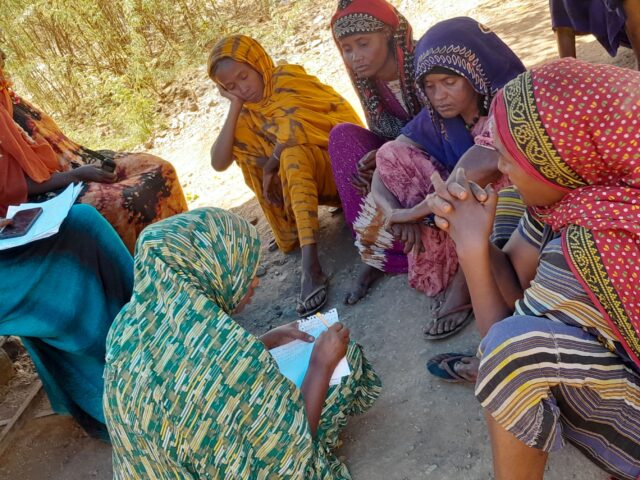
APDA recognized early on that women’s empowerment is essential for the overall development of the Afar Region. The organization believes that women’s empowerment is not just about improving the lives of individual women but is also a powerful driver for community-wide progress, that women in the community contribute their intellect to the changing times and the need for livelihood diversity.
Grassroots Initiatives for Women’s Empowerment
APDA’s women’s empowerment programs are designed to be both culturally sensitive and community-driven. The organization works closely with local leaders and women’s groups to develop initiatives that align with the norms and values of Afar society while promoting gender equality.
One of APDA’s most impactful initiatives is the training of women. These women, known as extension workers/social workers, are trained to build awareness, including maternal and child healthcare. They also play a critical role in educating their communities about reproductive health, hygiene, and nutrition. They are also advocates, counselors, and life-skill promoters instrumental in alerting religious leaders and clan leaders to assist women and girls whose rights are violated.
By becoming the social workers of their communities, these women extension workers serve as role models within their households and key advocates for women’s issues in the broader community. They act as a bridge between traditional leadership and the government, enabling them to address instances of abuse and continuously advocate against oppressive traditions. This includes challenging practices that exclude women from having a say in decisions about their own marriages.
Afar women are not only improving the well-being of their families but also gaining the respect and trust of their communities. This newfound respect often translates into greater influence in community decision-making processes, allowing women to advocate for their rights and contribute to shaping the future of their communities.
Economic Empowerment Through Cooperatives and Microfinance
APDA is helping Afar women achieve economic independence through cooperatives and microfinance programs. These initiatives provide women with the skills and resources they need to start their businesses, such as livestock trading or small-scale farming. In many cases, women form cooperatives, pooling their resources and knowledge to create more sustainable and profitable enterprises.
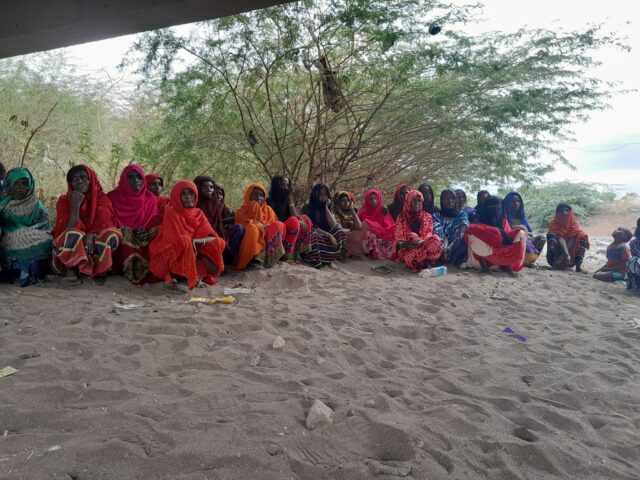
The success of these cooperatives has had a ripple effect throughout the community. As women generate income, they are better able to support their families, send their children to school, and reinvest in their businesses. This economic empowerment has also led to greater financial stability for entire communities, helping to reduce poverty and build resilience against external shocks, such as droughts or market disruptions.
Challenging Harmful Traditions
One of the most significant achievements of women’s empowerment efforts has been the community-driven cessation of FGM practices. Through working closely with women’s groups, religious leaders, and community elders, APDA has helped raise awareness about the dangers of FGM and has encouraged communities to abandon the practice. Along with the awareness of why harmful practices should stop, teaching Afar literacy is instrumental in establishing change.
This shift has been gradual and required continuous community engagement, but the results are evident. In several areas, FGM rates have dropped significantly, and more girls are being allowed to grow up without undergoing the harmful procedure. This progress has been critical in improving the health and well-being of Afar women and girls and has contributed to the region’s overall development.
Advocacy
APDA implements a culturally sensitive advocacy strategy by recognizing and collaborating with traditional leadership in the Afar region. This approach involves engaging clan and religious leaders to address challenges faced by women, leveraging their influence to foster community-wide acceptance of gender-sensitive initiatives.
A key strength of APDA is its community-based approach and extensive presence, with representation in 31 of the 46 Weredas of the Afar Region. To address gender issues effectively, APDA includes both men and women in its initiatives. This inclusive approach ensures that men are also engaged in addressing gender-related challenges that negatively affect women, recognizing that working solely with women may not bring the desired outcomes.
The advocacy efforts are supported by various actors, including extension workers, local women teachers, and community development committees. One of the organization’s major advocacy platforms is the annual Clan Leaders Conference, a 3–5-day event attended by clan and religious leaders from across the region. During the conference, key agendas are identified, prioritized, discussed, and endorsed by the clan leaders. Once endorsed, these agendas are widely accepted and implemented by the broader community.
To disseminate and reinforce these discussions, APDA utilizes multiple communication channels, including:
- Dagu: A traditional and highly effective oral information exchange method in the Afar community.
- Information, education, and communication tools: Posters, leaflets, videos, music, drama performances, and messages broadcast on public gatherings and local FM radio stations.
The Path Forward
Empowering Afar pastoralist women is far from complete. Organizations need to continue to expand their programs, reaching more communities and providing more opportunities for women to take on leadership roles. As more women become health workers, educators, entrepreneurs, and advocates for change, the potential for lasting, positive transformation in the Afar Region grows stronger.
Empowering women is not just about achieving gender equality—it’s about unlocking the full potential of the entire community. The story of women’s empowerment in the Afar Region is a testament to the power of grassroots initiatives and community-driven development. Through the efforts of organizations like APDA, Afar women are breaking down barriers, securing their rights, and transforming their communities from within. As these women continue to lead the way, the future of the Afar pastoralist society looks increasingly hopeful and resilient.
Through following these culturally and socially integrated approaches, APDA aims to achieve impactful results in the Community-Led Climate Adaptation Project funded by RVO, focusing on selected landscapes within the region.
